Training time in the big leagues
Tough apprenticeship as professional teams take on trainees
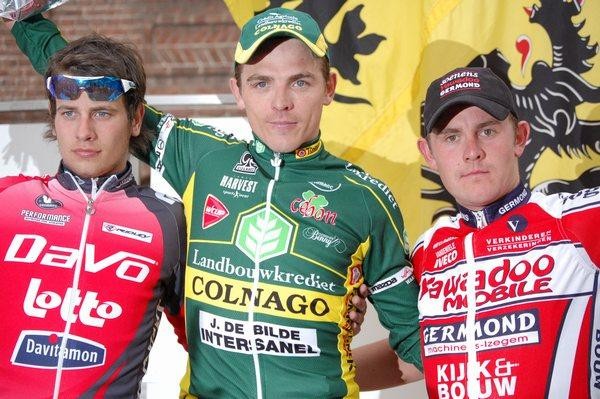
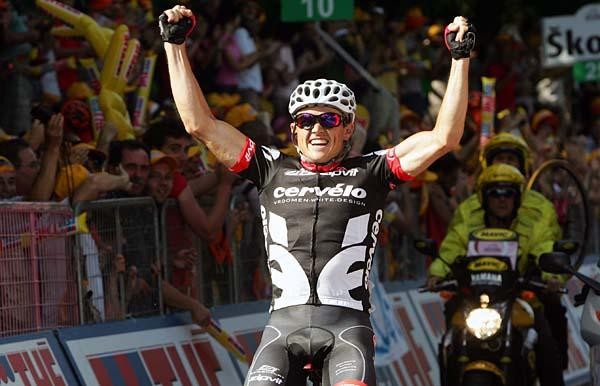
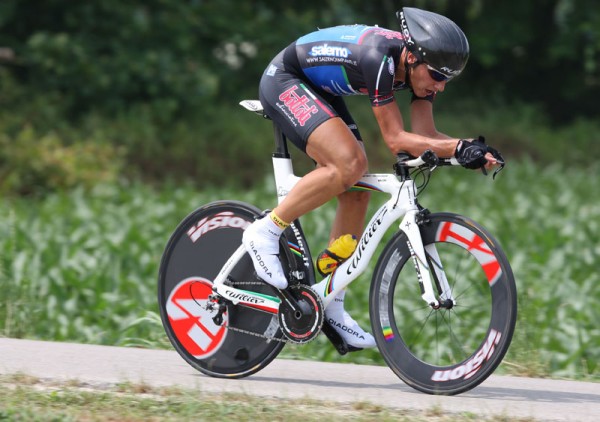
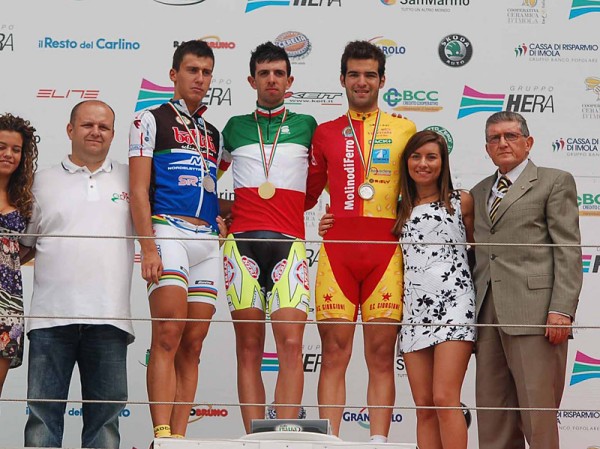
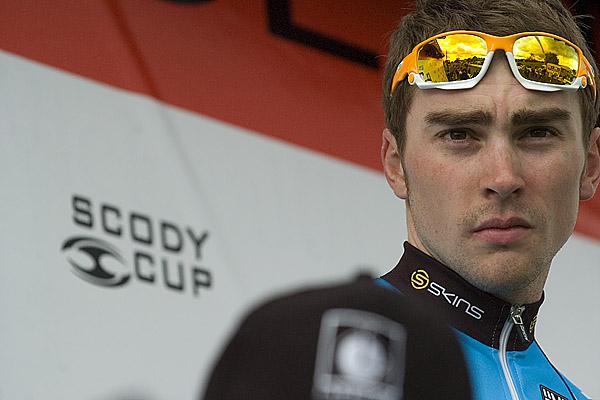
Competition for places on professional teams has always been fierce, especially for young riders entering the paid ranks. The combination of talent, confidence and most importantly, luck, is required for a professional team to come knocking at the door of a young amateur.
Every year ProTour and Professional Continental teams take on trainees - also known as stagiares - who will serve an apprenticeship. Many fans don't hear about these young riders because they are basically unknown outside their local areas and opportunities to carry on in the professional ranks are scarce, relative to the number of hopefuls.
It's traditional European practice to take young riders from regional amateur teams and offer them a set period to prove themselves within the professional environment. Semi-professional and amateur teams acting as 'feeders' for bigger squads has become de rigueur for ProTour outfits in recent times: French, Italian and Belgian professional squads source a good deal of their young talent from this type of arrangement and this is reflected in the trainee list for 2009.
AG2R La Mondiale, BBox Bouygues Telecom, Cofidis, le credit en ligne and Française Des Jeux are four French squads who recruit from regional amateur teams associated with the ProTour outfit. Often these relationships are long-standing and the heritage of the professional team is intertwined with the unpaid squad.
Professionals such as Simon Gerrans (pictured below) served as a trainee before being offered a full contract. The fact he made the trek from Australia created additional pressure to secure that elusive deal, although Gerrans has made good on that opportunity with stage wins in the Tour de France and Giro d'Italia, plus overall victory in the Tour Down Under.
In 2003 he rode as a trainee for Carvalhelhos - Boavista in Portugal before being handed a stint as stagiare for AG2r Prévoyance in 2004. In September that year he was offered a professional contract with the French outfit before moving onto Crédit Agricole in 2008 and Cervélo Test Team this season.
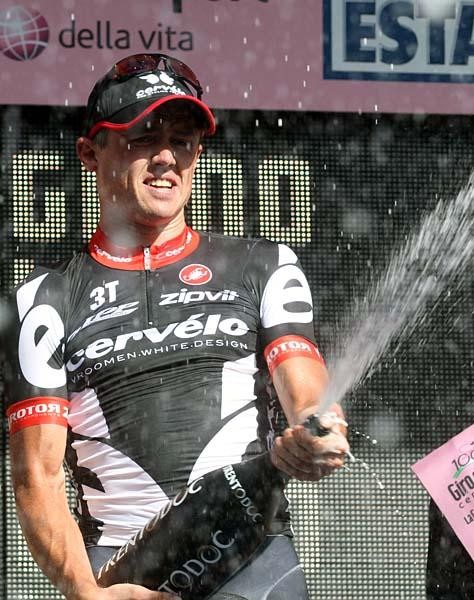
Doing 'The graft' - old versus the new
Get The Leadout Newsletter
The latest race content, interviews, features, reviews and expert buying guides, direct to your inbox!
The nature of traineeships within professional teams means that even if a trainee is offered a full professional contract they will ride smaller events for one or two seasons before making the progression to bigger races.
The Four Days of Dunkirk, Tour de l'Avenir, Thüringen Rundfahrt and Girobio ('Baby Giro') are four higher-profile European events that have traditionally served as viewing opportunities for team managers who wish to take a look at a potential recruit. The advent of national teams riding these races means better opportunities for young riders intent on securing their passage through the professional ranks.
Australian riders such as Matt Lloyd, Matt Goss, Wesley Sulzberger and Simon Clarke are now carving out professional careers in Europe thanks to a combination of hard work and the national institute. It took them on two-month trips throughout the season to race in European events, the likes of which aren't available back home.
The big difference between the old and new is that national institute teams now virtually replace the role traineeships played in the traditional system. They expose young riders to events where managers will be on the lookout for talent on the road, although there's another 'resource' many squads have taken advantage of in recent years - the velodrome, where speedy youngsters hone their skills.
With the track a breeding ground for many of the sport's highest-profile names - Bradley Wiggins, Brad McGee and Mark Cavendish, for example - many professional team managers will be aware of those riding well on the boards before they make a mark on the road. Based on the athlete's physical characteristics and performance parameters, decisions will be made whether to monitor a particular young rider with a certain timeframe in mind.
In the case of a rider such as Australia's Leigh Howard, strong performances on the track which are then reflected in his results on the road make teams such as Columbia-HTC take notice. Howard won a track world championship gold medal in Poland earlier this year before riding well for the Australian Institute of Sport team in the Tour of Japan and Thüringen Rundfahrt, where he took stage wins and spent time in the points classification lead.
British talent Adam Blythe rode for development team Davo-Lotto-Davitamon in the same race, winning the final stage. He will ride as a trainee for Belgian squad Silence-Lotto for the remainder of this year, while in early July Howard signed to Bob Stapleton's team for two years, joining the likes of Mark Cavendish, Michael Rogers and George Hincapie on the high profile outfit which won six stages at this year's Tour de France. To indulge in a little football parlance, he'll bypass the 'reserve team' phase and head straight to the 'first team'.
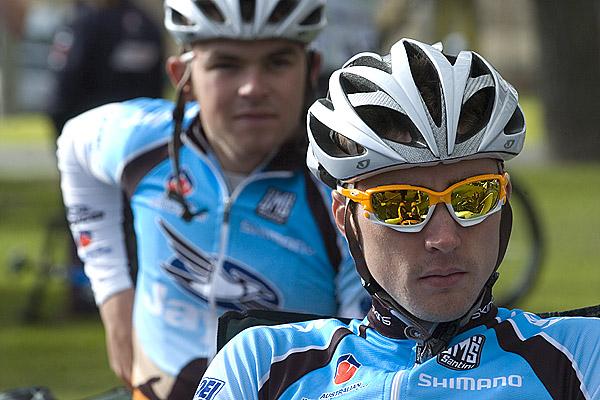
The regulations
The business of taking on a trainee rider can be complicated, given that the competition for places is so intense. The International Cycling Union (UCI) maintains strict guidelines for squads recruiting young riders with the view of possibly offering them a full-time ride that protects the rights of the rider and team.
Trainee rules for pro Tour and pro Continental teams:
2.15.110 In the period between 1 August and the end of the year, each UCI ProTeam [and Pro Continental] may admit into the team three elite or under 23 riders on the following conditions:
1. In the case of an elite rider, he shall not previously have belonged to any TT/I, TT/II, UCI ProTeam or professional continental team;
2. The UCI ProTeam must notify the UCI of these riders' identity before 1 August;
3. The UCI ProTeam shall obtain the authorisation of the national federation of the rider and if applicable, the authorisation of the national federation of the continental team in which he is registered;
4. These riders may only participate in races of the UCI continental circuits;
5. The riders in question may continue to take part in events in their club team or, if appropriate, in their UCI continental team.
Trainee rules for Continental and Women's teams:
2.17.008 In the period between 1 August and the end of the year, each continental or women's team may engage two under-23 riders as trainees on the following conditions:
1. The rider may not previously have ridden for a UCI road team;
2. The UCI continental or women's team must notify the UCI of the identity of the riders before 1 August;
3. Such riders shall obtain the authorisation of their national federations and may be associated with only one UCI team during this period;
4. Upon authorisation of his new team, a trainee rider may continue to participate in events of his/her club team.
Thanks to Tomas Nilsson for his editorial assistance
Trainees at ProTour teams in 2009:
AG2R La Mondiale
Loïc Desriac (Fra) - French National Team/Albi VS
Ben Gastauer (Lux) - Luxembourg National Team
BBox Bouygues Telecom
Jérôme Cousin (Fra) - Vendée U
Julien Guay (Fra) - Vendée U
Tony Hurel (Fra) - Vendée U
Cofidis, le Credit en Ligne
Julien Fouchard (Fra) - Côtes d'Armor-Maître Jacques
Benjamin Giraud (Fra) - AVC Aix En Provence
Arnaud Molmy (Fra) - French National Team/CC Nogent-sur-Oise
Française Des Jeux
Jocelyn Bar (Fra) - French National Team
Arnaud Courteille (Fra) - Team U Nantes Atlantique
Vincent Dauga (Fra) - French National Team/Entente Sud Gascogne
Fuji-Servetto
Pedro Merino (Spa) - Spanish National Team/Castilla-La Mancha
Lampre - N.G.C
Adriano Malori (Ita) - Bottoli Nordelettrica Ramonda
Liquigas
Cesare Benedetti (Ita) - UC Bergamasca
Maciej Paterski (Pol) - Polish National Team
Silence-Lotto
Adam Blythe (GBr) - Davo-Lotto-Davitamon
Kris Boeckmans (Bel) - Davo-Lotto-Davitamon
Yannick Eijssen (Bel) - PWS-Eijssen Cycling Team
List courtesy of Tomas Nilsson